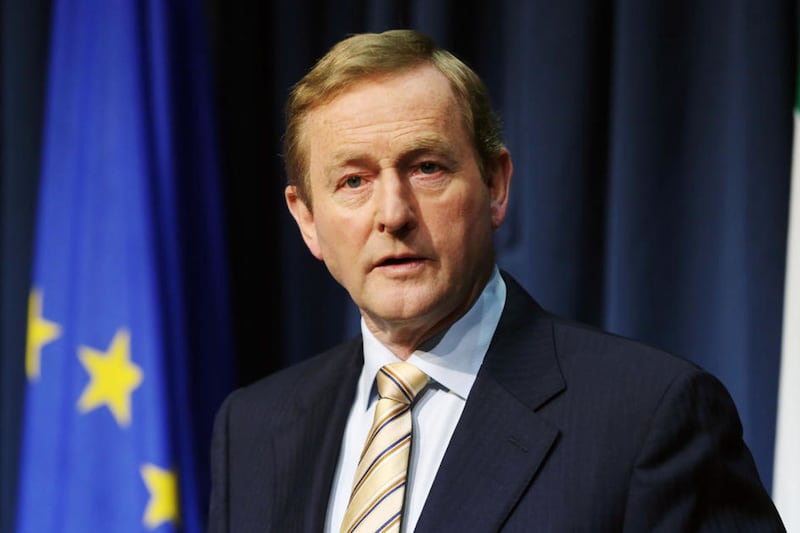THERE was nothing inevitable about the threat – “the gravest yet” – according to Gerry Adams, to the future existence of the north's political institutions.
Over the last four years the Tory government in Westminster on a political crusade, wielding a financial scythe, has cut deep into the welfare state here and in Britain.
They have received encouragement in their endeavours from unionist Tories in the north's executive who are of a similar mind.
We are at this critical impasse because decisions taken by Tories in London and Belfast have led us here. It is as simple as that.
For the last two years Sinn Féin ministers in the executive blocked all attempts by unionists to introduce Tory cuts. And recently SDLP and Sinn Féin ministers jointly thwarted the imposition of cuts.
Writing in his blog last week the Sinn Féin president and TD for Louth said, “The future of the political structures created by the Good Friday Agreement hangs by a thread.”
This crisis has been publicly simmering for two years. The Stormont House Agreement (SHA), agreed last December was shaped by local politicians to suit the needs of the people of the north and to avoid the collapse of the executive and assembly over welfare cuts.
The agreement was designed to protect the many tens of thousands of people in receipt of assistance from the public purse from the Tory scythe. The unionist Tories reneged on their commitments in the agreement to protect those in receipt of welfare assistance.
The last four years of Tory cuts at Westminster resulted in £1.5bn being slashed from the Executive's budget.
This impacted on the quality of public services on a range of fronts : education, health, jobs, social services for children, the elderly, the long-term sick, the disabled, the poor, women, the community and voluntary sector and numerous other services dependent on public funds.
The re-election of the Tories has significantly changed the context within which the north's power-sharing institutions function because they are planning to cut a further £25 billion pound from public spending.
They are refusing to say how much will be cut from the north's budget but speculation has it in the region of over £2 billion.
The British Secretary of State Theresa Villiers has told the north's deputy first minister Martin McGuinness the cuts “will be eye-watering”.
At a meeting in the British House of Commons last week the deputy first minister said that in the recent Westminster election Sinn Féin had stood on an anti-austerity platform and “we are absolutely determined to honour the mandate given to us.”
The north's first minister Peter Robinson and other unionists ministers accused Sinn Féin of failing to take 'tough decisions'.
This macho nonsense is coded language for cuts and the advocates of it are usually the rich and powerful, who do well out of the welfare state when it suits them, while they protect their excessive ministerial salaries and perks and criticise it.
Let us have 'tough decisions' that support the welfare state in all its forms. Let us have 'tough decisions' that protect all of us who need the welfare state and are happy to pay taxes to ensure not only that it survives but that it is strong and capable of meeting the needs of the people in receipt of its assistance.
The joint opposition by Sinn Féin and SDLP ministers in the executive is a very important first step in building a broad-front of opposition to welfare cuts whether they are promoted by Tories in Westminster or unionists in the assembly.
The next step that is needed is to mobilise civic society in the north and that should be led by the trade unions because in a society, like the north, divided over political allegiances only the unions have the capacity to appeal to and mobilise the widest opinion.
The DUP would not be so belligerent in supporting welfare cuts if there was organised grass roots opposition in the unionist community.
Loyalists appear incapable of championing this cause.
Working class unionists need a new party which would focus on their economic and social needs instead of focusing on flags, parades and marches.





